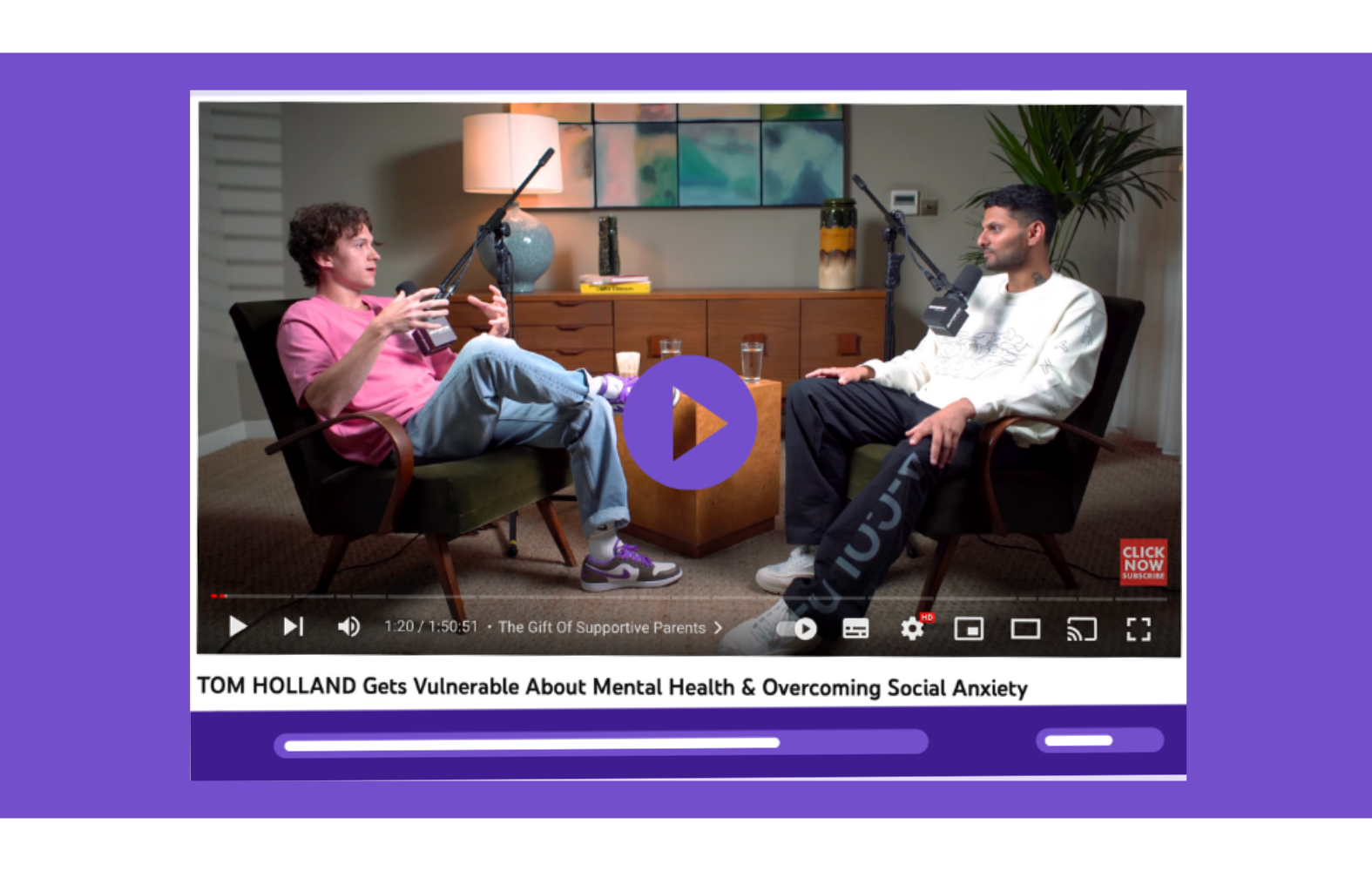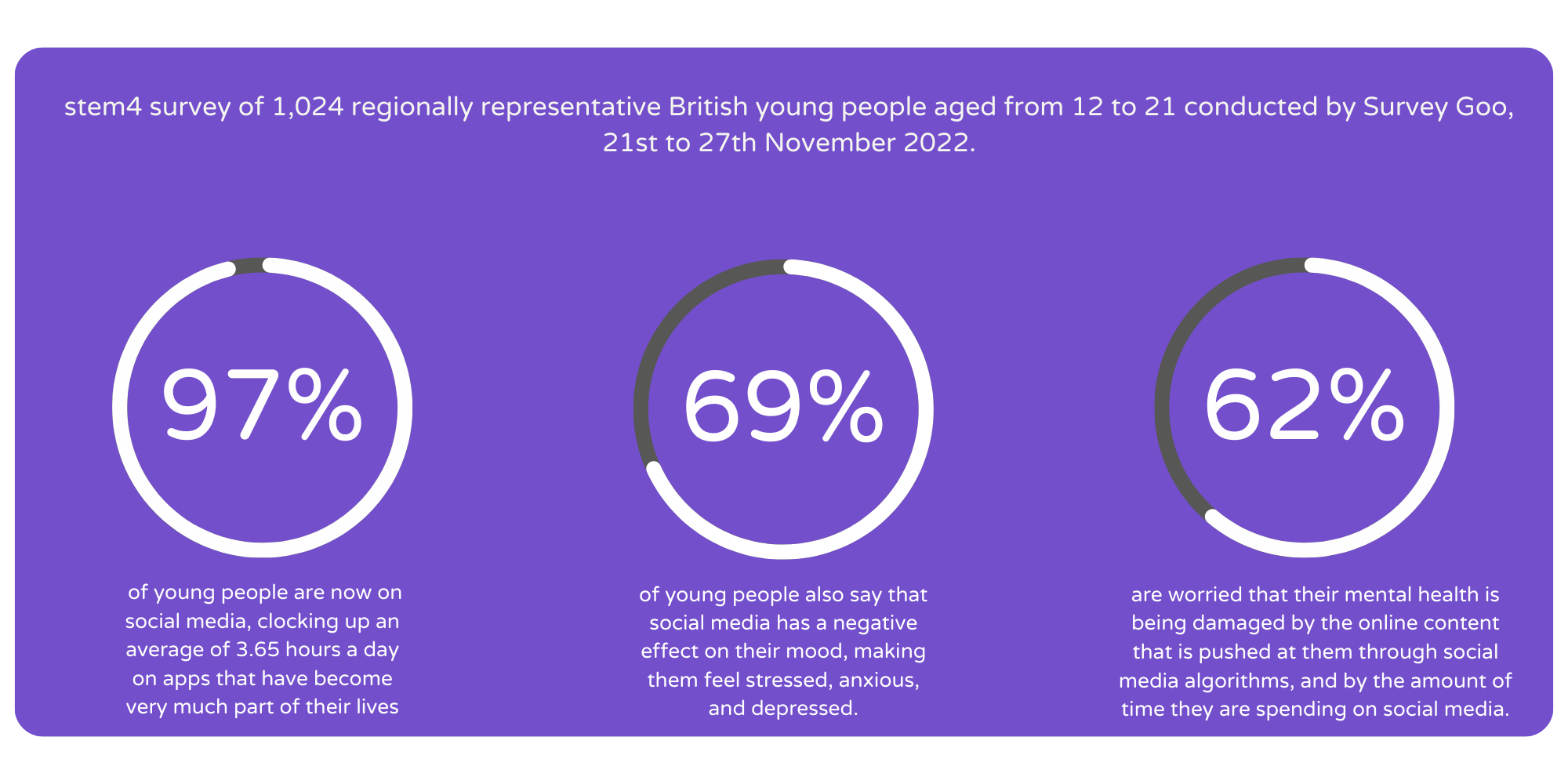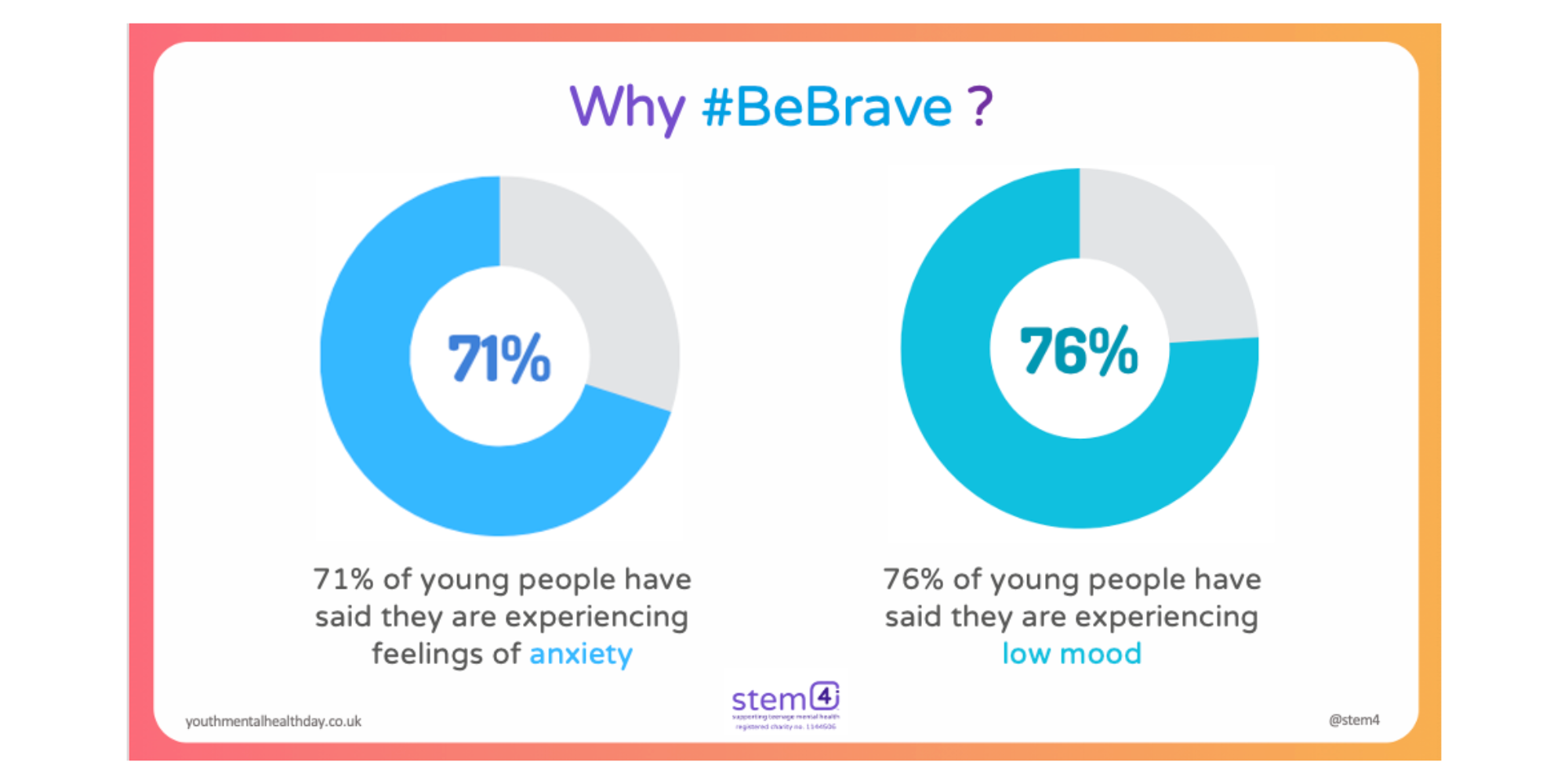It’s sending the wrong message to young people.
In his appearance on the Jay Shetty podcast, actor Tom Holland discussed his surprise at the negative backlash he received following his announcement in August 2022 that he was taking time off of social media.

Noticing the impact which scrolling on social media was having on his well-being, Tom released a video on Instagram in 2022 telling followers he would be having time away from the internet. In this statement he signposted followers to his family’s charity, The Brother’s Trust, and stem4’s free mental health apps.
View this post on Instagram
This is yet another example of celebrities bravely using their platform to be have an open dialogue about their mental health:
- Footballer Dele Alli has opened up about mental health and trauma in an interview with Gary Neville this week
- Singer Lewis Capaldi has spoken about having tourettes in a recent Netflix documentary and has recently announced a break from performing
- Cricketer Ben Stokes talked about experiencing panic attacks in an Amazon documentary following the death of his father
- Rapper, Konan shared his experience of PTSD and the treatment he has received in his Channel 4 documentary
- stem4 ambassador and Actor Rosie Day has also used her platform to share her own experience of mental health
In the interview with Jay Shetty, Tom reflected on his disappointment toward the reaction in the press to his choice to temporarily step away from his social media platforms:
“I tried to position myself and say like, ‘I’m taking a break from social media because I feel like my mental health will benefit from it.’ And the thing that really upset me is the press ran with that and they tried to make out that I was having this mental breakdown.”
Tom’s decision to take steps to reduce his social media presence to prioritise his own wellbeing, was instead presented in a negative light with speculation that he had a problem rather than the fact he was being proactive.
A similar negative presentation of this conversation about mental health. has been apparent this week in the press coverage following the release of the podcast episode as articles .
In a stem4 survey of a 1000 young people last year, 97% 12-21 year olds reported using social media daily, clocking an average of 3.65 hours. The irony was that 69% of young people in this group also reported that social media had a negative effect on their mood, making them feel stressed, anxious, and depressed. 62% reported that their mental health had been affected. However, even though they acknowledged the negative impact, 95% said they felt helpless when quitting their online habits.

Therefore, it is clear that there are growing numbers of young people who are reducing the amount of time they are spending on social media and who also have concerns about how social media is affecting their mental health.
According to Dr Nihara Krause, Consultant Clinical Psychologist and CEO of stem4, the earlier children and teenagers make small steps to break negative patterns of behaviour, learn behaviour regulation and support their mental wellbeing, the less likely issues such as anxiety, depression and eating disorders are to become out of control. A great believer in the power of developing Digital Resilience, Dr Krause recommends a range of techniques outlined on the stem4 website
Dr Richard Graham, Consultant Child & Adolescent Psychiatrist and Clinical Director at stem4, further identifies tips for young people who spend too much time online.
Therefore, Tom Holland offers a positive role model to young people in deciding to be proactive in looking after his well-being by not only taking time offline but also focussing on self-regulation in other areas. In the podcast episode, Tom mentioned several positive steps young people can take, such as
- spending time with family and friends,
- doing physical activities to improve mental health,
- taking a break from the “constantly on” nature of acting,
- navigating social anxiety through the choice to not drink alcohol
Jay Shetty further provides philosophical perspectives learned when he was a monk on listening to your instincts rather than being dictated to by unhealthy emotions.
One of our instagram followers wrote the following comment about Tom’s interview:
“He is very brave. It’s okay to show yourself vulnerable and that doesn’t mean showing weakness. That means an act of real strength. I feel so much admiration for his showing so much advocacy for mental health”.
The theme for our upcoming Youth Mental Health Day 2023 on the 19th September is #BeBrave. Today, four in ten young people say they have mental health difficulties, of which seven in ten say they are experiencing feelings of anxiety (71%) and low mood (67%).

And over the past year, nearly half of young people say they have experienced feelings of loneliness, isolation, and feeling left out either all, or most of the time. We need to support the next generation of talent to get the best of themselves and not be influenced by the adverse and luring area of technology which under the guise of social media is just a streaming platform.
Bravery is about taking steps to do something difficult since staying in your comfort zone doesn’t bring about growth. Being honest and open about mental health challenges and taking proactive and early steps to improve our mental wellbeing and learning how to negotiate life’s temptations and challenges is the way forward. We have a growing enemy in the form of digital exploitation to fight.
We should celebrate and encourage all people who decide to make choices which have a positive impact on their wellbeing to succeed, not crush them.


